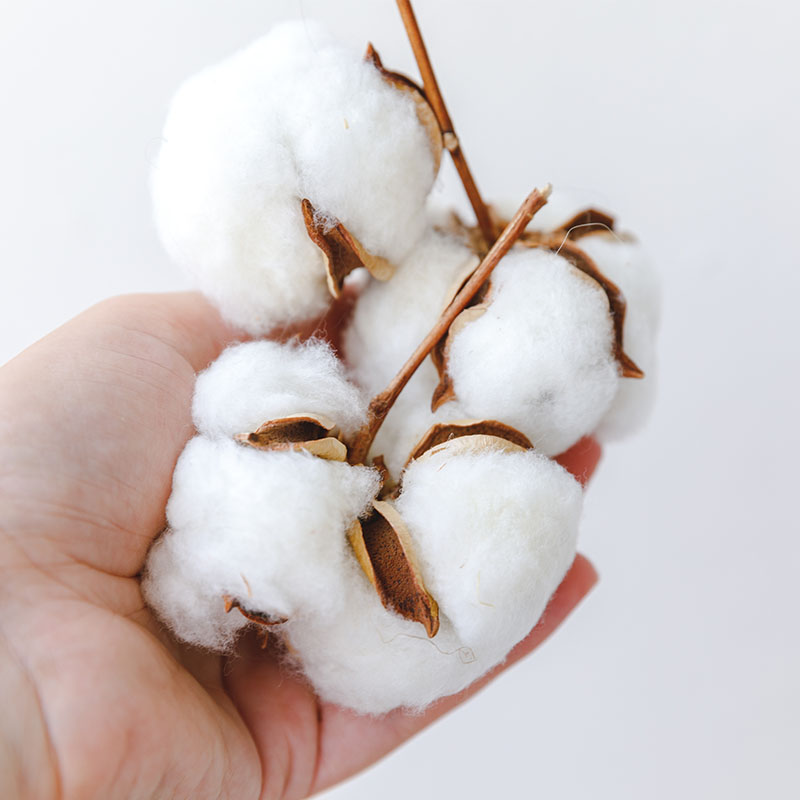
Facts about Organic Cotton

As opposed to synthetic materials such as polyester or polyacrylic which are made from crude oil, cotton is a natural, farmed product. It is a biodegradable product that is cultivated from non-GMO seeds and feels luxuriously soft on the skin.
However, regular cotton cultivation can have dangerous effects on humans as well as the environment when grown with the help of chemicals such as fertilizers, pesticides and herbicides. Organic cotton on the other hand doesn’t rely on the use of any chemicals and doesn’t take a toll on the soil, water, animals or humans. Here are some more important facts about organic cotton:
More Sustainable
Organic cotton farming avoids the use of chemicals that could turn toxic for humans or wildlife. By bypassing chemicals such as pesticides and inorganic fertilizers, organic cotton farmers actually help build back the soil structure and its fertility and lock CO2 back into the soil. This has an all-around positive impact on climate changes too.
Cleaner Water
When chemicals such as pesticides and fertilizers are used on conventionally grown cotton, these toxic chemicals eventually leach off into streams and rivers and get into human water supplies. Millions of people drink this potentially toxic water which most water treatment facilities can’t remove. This contaminated water is known to be cancer-inducing and kills off thousands of fish and other animals each year. Organic cotton growing practices on the other hand, ensure that rivers don’t get polluted as they don’t include the use of chemicals.
Eco-friendly
With freshwater becoming a dwindling resource in line with climate changes, it needs to be used judiciously. While 1Kg of regularly grown cotton requires around 29,000 liters of water for cultivation, organically-grown cotton requires just a fraction of this (7,000 liters/Kg of organic cotton). It’s better to use natural cotton seeds as against the genetically-modified seeds to save on water usage.
Better Quality of Life
According to WHO, thousands die or develop health issues each year from being associated with non-organic cotton farming and cotton processing practices. This is aside from the debt burden on farmers who take loans for buying expensive pesticides and fertilizers, resulting in many a farmers’ suicide when they are unable to pay back.


